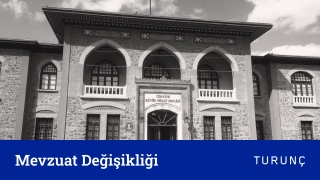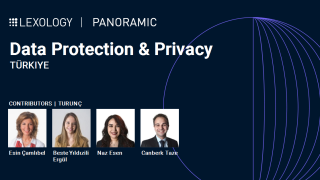16 Oct 2024
TURUNÇ has advised Boğaziçi Ventures on its follow-on investment in Fiber Games, a hyper casual games-focused game development studio. Arz Portföy also joined the round. TURUNÇ had also advised Boğaziçi Ventures on its initial investment in Fiber Games. Boğaziçi Ventures is a leading Turkish Capital Markets Board-regulated venture capital fund focused primarily on fintech, health...
01 Oct 2024
TURUNÇ has advised Gelecek Etki Fonu (Future Impact Fund) on its investment in Novus, a provider of customizable, on-premise AI and LLM solutions for enterprises. Sabancı Ventures, Inveo Ventures and other investors also joined the round. Gelecek Etki Fonu is a Capital Markets Board-regulated venture capital fund managed jointly by Tacirler Asset Management, a leading...
13 Sep 2024
TURUNÇ has advised Boğaziçi Ventures on its investment in Magfi, a platform that allows advertisers to reach communities on Telegram and Discord simultaneously. Eleven VC also joined the round. Boğaziçi Ventures is a leading Turkish Capital Markets Board-regulated venture capital fund focused primarily on fintech, health tech, retail tech and gaming. The TURUNÇ team included...
13 Aug 2024
Sermaye Piyasası Kurulu (“Kurul”), 8 Ağustos 2024 tarihli ve 2024/38 sayılı bülteninde kripto platformlarının kuruluş şartlarını yayımlamıştır.[1] Kuruluş şartların özetini aşağıda takdim ediyoruz. Kuruluş izni alan platformların faaliyet izni almak üzere Kurul’a ayrıca bir başvuru yapması da gerekecektir.[2] (A) Platforma İlişkin Şartlar (B) Kuruculara, Ortaklara ve Yöneticilere İlişkin Şartlar – Platform kurucularının, – platform ortaklarının,...
01 Aug 2024
TURUNÇ authored the Turkish chapter of Lexology Panoramic’s Data Protection & Privacy (2025) title. The contributing lawyers were Esin Çamlıbel, Beste Yıldızili Ergül, Naz Esen and Canberk Taze. The publication, previously known as Getting the Deal Through, is a comparative guide of the legislation relating to data protection and privacy in 35 jurisdictions. In addition to Turkey,...
16 Jul 2024
TURUNÇ authored the Turkish chapter of Lexology Panoramic’s Automotive & Mobility (2024) title. The contributing lawyers were Esin Çamlıbel, Beste Yıldızili Ergül, Naz Esen and Canberk Taze. The publication is a comparative guide of the legislation relating to the regulation of the automotive industry in 19 jurisdictions. In addition to Turkey, the jurisdictions covered by the 2023...
10 Jul 2024
TURUNÇ has advised Boğaziçi Ventures on its follow-on investment in Hiwell, an online therapy platform. Eksim Ventures, Ünlü & Co and Kinesis Teknoloji Yatırımları also joined the round. TURUNÇ had also advised Boğaziçi Ventures on its initial investment in Hiwell. Boğaziçi Ventures is a leading Turkish Capital Markets Board-regulated venture capital fund focused primarily on...
09 Jul 2024
Turkey’s first legislation governing crypto assets (the “Crypto Law”) entered into force on July 2, 2024. We present below a summary of the Crypto Law, which made significant amendments to the Turkish Capital Markets Law. 1. General Overview The Crypto Law authorizes the Turkish Capital Markets Board (the “Board”) to regulate (a) crypto assets that...
08 Jul 2024
TURUNÇ has advised Gelecek Etki Fonu (Future Impact Fund) on its investment in Mindsite, an e-commerce metrics analytics platform. Finberg, the Turkish Technology Development Foundation, TT Ventures also joined the round. Gelecek Etki Fonu is a Capital Markets Board-regulated venture capital fund managed jointly by Tacirler Asset Management, a leading asset management company and Vestel...









